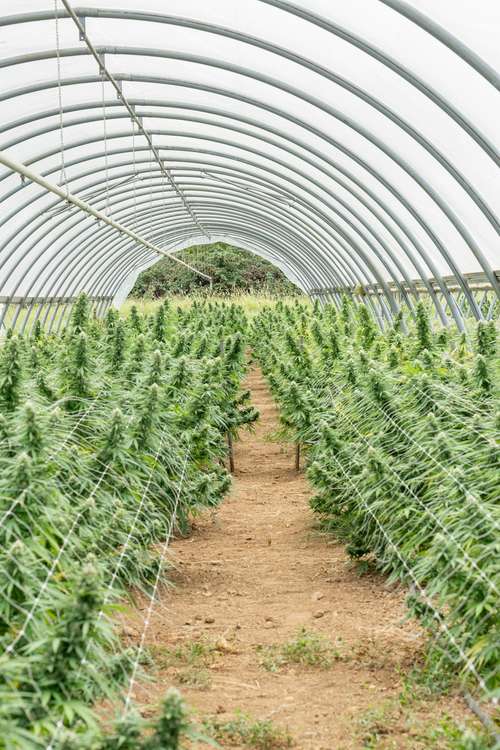The hemp industry has seen a rollercoaster of regulatory changes in recent years, making it hard for consumers and businesses to keep up with hemp legal issues. The new bill aiming at hemp loophole closure specifically targets products with over 0.3% delta-9 THC, which has left many wondering what the future holds. It’s as though an unintentional door that once allowed high-THC hemp-derived products to fly under the radar is now being firmly shut, with far-reaching impacts across the board.
There’s no denying that legislative changes in hemp policy have sparked a fair bit of debate. Many in the industry recall the 2018 Farm Bill as a game changer that still left a few strings to be tied. But now, with the doors closing on what some call the CBD loophole, the conversation has turned to the potential implications for the hemp market and federal hemp laws. You might ask, “What does this mean for everyday consumers, and how will businesses adjust?” Well, let’s dive into that.
The Rise of the Hemp Loophole
At first glance, the hemp loophole was a little quirk in the system—a gap that emerged after the Farm Bill and allowed products with unexpectedly high THC levels to be sold legally. This section explores how that gap came to be and what it meant for hemp regulation then and now.
The loophole quickly became a hot topic among stakeholders, as entrepreneurs and manufacturers took advantage of the situation. Initially, many thought it was a clever workaround for consumers looking for alternatives to traditional cannabis products. However, this casual oversight in hemp laws soon raised critical concerns over hemp product restrictions and public safety. Legislative changes hemp aimed to plug this gap, signaling a shift toward more stringent hemp regulation. Discussions around hemp legal issues have intensified, and some regulators believe that closing hemp gaps can lead to a more standardized and safer market.
There’s a clear message emerging from lawmakers: products exceeding the 0.3% delta-9 tetrahydrocannabinol threshold are off-limits. This creates a significant impact on what was once a thriving CBD loophole, forcing businesses across the hemp industry to reassess their products. Many in the sector now wonder if this new stance might stifle innovation or, in fact, foster a more transparent, compliant market.
Regulatory Implications and Industry Reactions
The current transition in federal hemp laws has not gone unnoticed. In this section, we’ll explore the ripple effects and the responses from various segments of the industry. With the hemp loophole closure in place, stakeholders have had to rework their strategies and product lines.
Some industry leaders have expressed frustration, saying the sudden enforcement of existing standards has caused significant disruptions across the hemp market. There is genuine concern that hemp product restrictions may unexpectedly hinder consumer choice and strangle entrepreneurial spirit. Businesses accustomed to a more lenient interpretation of hemp regulation now face an uphill battle in maintaining both consumer trust and compliance. Every adjustment in hemp laws creates both a challenge and a learning curve for the industry.
There’s also a broader conversation about how the new measures will affect hemp law enforcement. For example, many experts voiced that while the intentions behind closing hemp gaps are well-founded, the rapid pace of implementation might give rise to ambiguities. Some even commented, albeit informally, that the gap closure might be riding roughshod over a market still finding its footing. The connection between legislative changes hemp and consumer safety is undeniable, but achieving the right balance is key.
With regulatory bodies taking a firmer stance on intoxicating hemp products, it is essential for businesses to pivot quickly. There is a trend towards increased hemp market compliance that could foster a new era of trust, but only time will tell if the benefits outweigh the disruptions noted by critics and current hemp legal issues.
Legislative Shifts and the Future of Hemp Regulation
Looking ahead, legislative changes in hemp regulation are expected to become even more significant. This section dives into how lawmakers and industry experts are strategizing for a post-loophole era, where clear rules replace the once murky gaps in regulation.
Many within the hemp industry are adapting by diversifying their product lines to ensure they remain well below the 0.3% THC limit. They see this as an opportunity to standardize products and remove any ambiguity associated with hemp regulation. Though some worry that a strict approach may leave little room for the creativity that invigorated the sector during the CBD loophole era, others feel that the long-term benefits of a more comprehensible regulatory framework could outweigh any short-term challenges.
This new direction has also spurred innovation in testing and product development. For instance, companies are now investing heavily in advanced testing methods to guarantee their products meet federal hemp laws. Not only does this promote greater transparency, but it also builds trust with the consumer. Now, instead of wrestling with inconsistent regulations, the hemp industry might finally enjoy a period of more deliberate and responsible growth. The move reflects a larger trend toward robust hemp law enforcement, where compliance means business.
Critically, the focus now shifts from merely filling regulatory gaps to building a framework that promotes sustainability and accountability. It’s as if the industry is undergoing a necessary makeover, trading in shortcuts for thoroughness. The conversation has steadily pivoted to how these hemp policy changes and closing hemp gaps can provide a safer, more dependable market in the long run.
A Call for Balanced Hemp Regulation
Bridging the gap between strict regulatory measures and fostering innovation within the hemp industry is a central challenge. This section aims to foster a balanced dialogue, emphasizing the delicate nature of closing hemp loopholes effectively while still encouraging industry growth.
On one hand, regulators have a duty to protect public safety and ensure that all hemp products meet rigorous standards. On the other hand, businesses, particularly smaller enterprises, worry that overly strict hemp product restrictions could stifle creativity and drive them out of the market. It’s a bit like trying to navigate a narrow bridge: too leaning one way, and you risk a collapse. Instead, what is needed is a scalable solution that allows for growth within clear boundaries.
This dynamic interplay between regulatory intent and industry execution has sparked lively debates in industry forums and roundtable discussions. Many experts argue that consistent hemp regulation would not only benefit consumers but would also set a global standard in cannabis regulations. As one analyst put it in a meeting, achieving hemp market compliance through balanced measures could ultimately pave the way for a more resilient industry structure.
Such discussions highlight the potential for future hemp law enforcement to evolve in a manner that is fair and forward-thinking. With further legislative changes hemp on the horizon, the road ahead may actually be full of promise, assuming stakeholders can work together towards a unified vision for hemp regulation.
In conclusion, the decision to finally close the hemp loophole represents a turning point in hemp regulation. By eliminating ambiguous gaps, lawmakers are moving toward a clearer set of rules that will affect consumers, manufacturers, and distributors alike. The push for improved hemp market compliance is creating ripples across federal hemp laws and reshaping the industry's landscape. While this new era of stringent regulation poses its own set of challenges, it might also usher in a period of transparency and accountability that benefits everyone involved. The conversation around hemp policy changes is far from over, but one thing is clear: the closing of these hemp loopholes is a step toward a more predictable, safer hemp industry.




